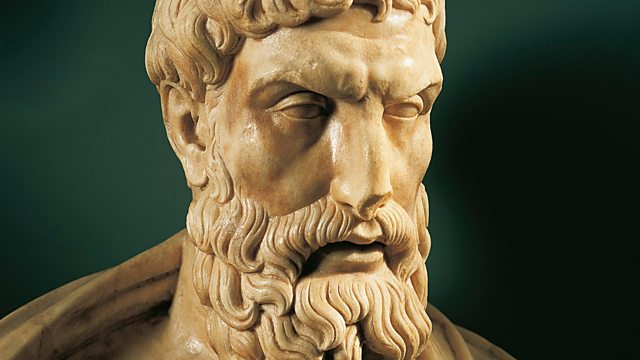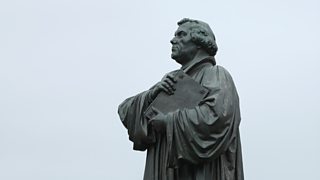In search of the good life: Epicurus and his philosophy
Bridget Kendall and guests discuss how the writings of Epicurus and his followers influenced the development of modern science and theories of evolution
The popular view of an Epicurean is that of somebody who focuses on pleasure as our guiding principle, indulging in the finer things of life to achieve happiness. And yet what the Ancient Greek philosopher Epicurus understood by pleasure was far more nuanced. In fact, Epicurus and his followers advocated a simple lifestyle, withdrawn from society, where we are content with little.
What is perhaps less known is how Epicurean writings on physics foreshadowed some of the most significant developments in early modern science – including Darwin’s theory of evolution and even Heisenberg’s uncertainty principle.
Joining Bridget Kendall is Catherine Wilson, visiting Professor at the Graduate Centre of the City University of New York, and the author of various works on Epicureanism, including How to Be an Epicurean: The Ancient Art of Living Well; Dr Sonya Wurster, Honorary Fellow at La Trobe University in Australia who’s working on a book about the Epicurean philosopher Philodemus; and philosopher and historian David Sedley, Emeritus Laurence Professor of Ancient Philosophy at the University of Cambridge, and the author of numerous publications on Greek and Roman thought.
(Image: Bust of Epicurus. Photo: DEA / G. DAGLI ORTI/De Agostini via Getty Images)
Last on
Broadcasts
- Thu 2 Apr 2020 09:06GMT91�ȱ� World Service
- Thu 2 Apr 2020 15:06GMT91�ȱ� World Service except Australasia, East and Southern Africa & West and Central Africa
- Thu 2 Apr 2020 23:06GMT91�ȱ� World Service
- Sun 5 Apr 2020 13:06GMT91�ȱ� World Service East and Southern Africa & West and Central Africa only
- Sun 5 Apr 2020 14:06GMT91�ȱ� World Service except Americas and the Caribbean, East and Southern Africa, South Asia & West and Central Africa
- Mon 6 Apr 2020 03:06GMT91�ȱ� World Service
Featured in...
![]()
Politics, philosophy and faith—The Forum
Ideas, people and events that shaped cities, nations and civilisations
Podcast
-
![]()
The Forum
The programme that explains the present by exploring the past



